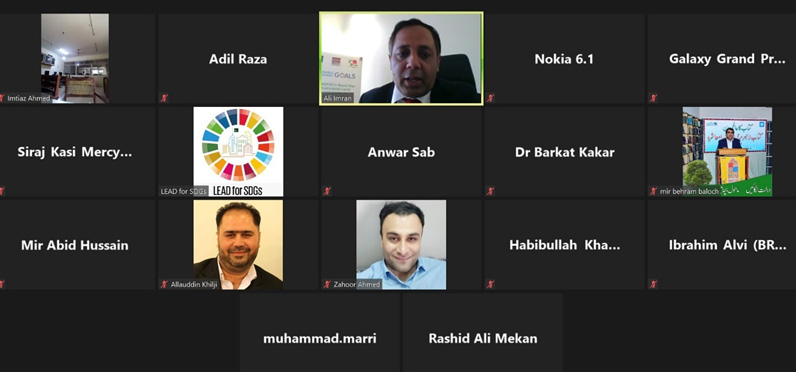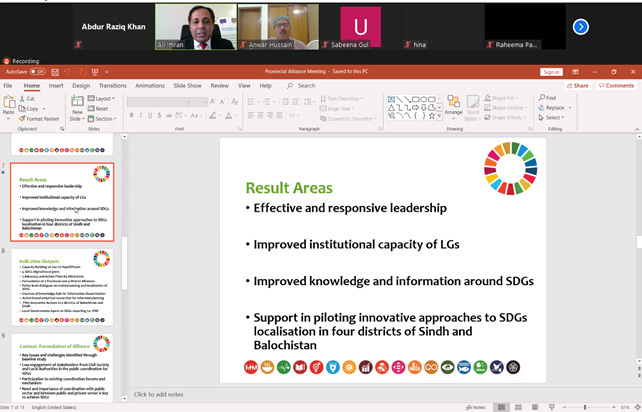6 August 2020 | ISLAMABAD – UCLG ASPAC LEAD for SDGs Programme, with the financial support from EU Pakistan and in collaboration with its members Local Council Associations of Balochistan and Sindh (LCAB and LCAS), launched the first-ever Provincial Alliances on SDGs during the month of August 2020. The objectives of Provincial SDGs Alliances are to provide a multi-stakeholders public-private partnership platform in support of SDGs implementation at sub-national and local levels, through fostering policy dialogue, advocacy, research and analysis, and information sharing.
On 6 August 2020, the Provincial Alliance on SDGs in Sindh (PASS) was formed and launched through a virtual meeting of the alliance members. Over 18 members from SDGs units, civil society organisations, media, academia and local council associations participated in the formation and launch of the alliance. On this occasion, the members of the PASS welcomed the idea of creating an inclusive and participatory platform where they can work together to contribute to the localisation and implementation of SDGs.
On 13 August 2020, Provincial Alliance on SDGs in Balochistan (PASB) was formed and launched, virtually. The first meeting of the Alliance was attended by over 22 participants from the SDGs units, ex-mayors and councillors, civil society organsiations, media, private sector and academia. The participants welcomed the idea and discussed that although there are certain other networks of organisations present in Balochistan, however PASB will provide a platform for the “multi-stakeholder” engagement, specifically around SDGs. Mr. Abid Hussain Lehri, President of LCAB, welcomed the participants and highlighted that the local governments should be at the heart SDGs implementation, however, it is unfortunate the local political leadership is not been made an active part of this process. He said that PASB will provide a platform to coordinate between different tiers of the government and with the CSOs.
The alliance members from Sindh and Balochistan acknowledged that the alliances will be a very helpful platform for coordination between various stakeholders, stock-taking and consolidation of on-going efforts, cooperation to develop public-private partnerships and communicate on SDGs and assured their full cooperation and support to achieve alliance objectives.
At the end of the launch events, alliance members agreed on the follow up actions to work on structures of the Alliances and to develop annual plan of actions.












